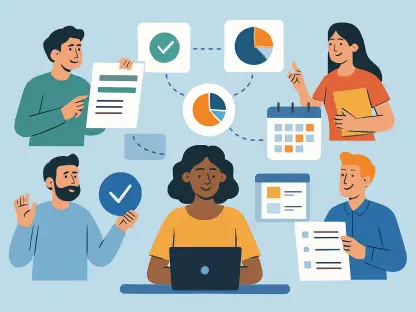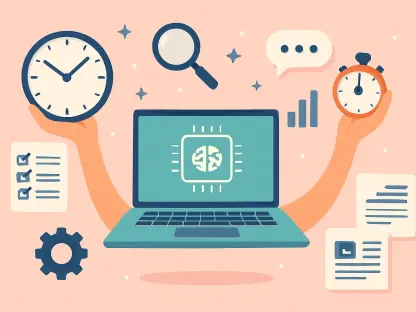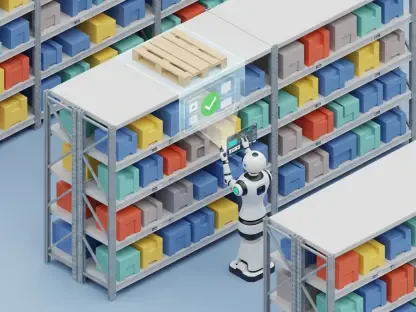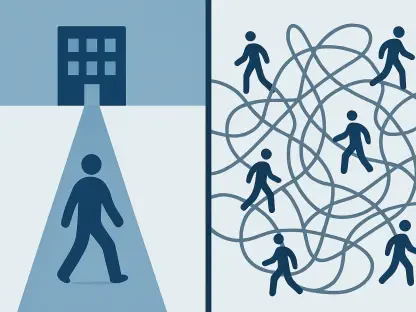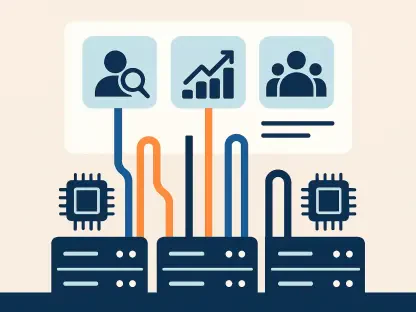In a world where technology can redefine entire industries in the blink of an eye, the profound influence of artificial intelligence (AI) and automation on workplaces demands attention and understanding. Digital resources, particularly e-books, have become invaluable in shedding light on this transformation, offering accessible and comprehensive insights for businesses, employees, and societies navigating uncharted waters. These materials do more than just present data; they connect abstract technological concepts to practical, everyday applications, helping a diverse global audience make sense of a landscape where human and machine collaboration is no longer optional but essential. By diving into these digital texts, readers gain the tools to not only adapt to rapid shifts but also to shape the future of their professional environments with informed decisions and innovative thinking.
Exploring Technology’s Role in Modern Workspaces
Bridging Knowledge Gaps with Digital Literature
E-books serve as a critical bridge, making the complexities of AI and automation understandable to a wide range of readers, from corporate executives to frontline workers. They deliver detailed explorations through real-world case studies and expert analyses, demystifying how these technologies are reshaping industries. Beyond technical breakdowns, these resources weave in compelling narratives that highlight human experiences amidst technological change, ensuring the subject matter resonates on a personal level. Accessibility remains a key strength, as digital platforms distribute this knowledge globally, allowing individuals in remote or underserved areas to engage with cutting-edge ideas. This democratization of information sparks vital discussions about how societies can prepare for and influence the trajectory of workplace evolution, ensuring that no one is left behind in the rush toward innovation.
The impact of such widespread access to e-books extends into fostering a culture of continuous learning and adaptation across diverse demographics. These texts often include actionable advice on integrating technology into various professional settings, from small startups to multinational corporations. They emphasize not just the ‘how’ but also the ‘why’ behind adopting automation, encouraging readers to think critically about long-term implications. By presenting both success stories and cautionary tales, e-books equip individuals with a balanced perspective, helping them anticipate challenges like workforce displacement while identifying opportunities for growth. This holistic approach ensures that the conversation around technology’s role in work remains inclusive, forward-thinking, and grounded in practical reality.
Navigating Philosophical Shifts in Work’s Purpose
Another dimension illuminated by e-books is the evolving definition of work itself in an era dominated by automation. As machines increasingly handle routine and repetitive tasks, deeper questions arise about the essence of employment—whether it serves primarily as a source of income, a marker of social status, or a path to personal fulfillment. Drawing parallels to historical turning points like the Industrial Revolution, these digital texts frame work as a concept in constant flux, shaped by cultural and technological forces. They challenge readers to envision a future where traditional job structures might give way to new forms of contribution, prompting a reevaluation of societal values tied to labor and productivity in a tech-driven world.
Beyond individual reflection, e-books also explore the broader cultural implications of these shifts, addressing how communities and economies might adapt to redefined roles. They delve into scenarios where automation could free up time for creative or interpersonal pursuits, potentially reshaping what society prioritizes as meaningful work. Discussions often include perspectives from various global contexts, highlighting how different cultures approach the balance between technological advancement and human purpose. By presenting these nuanced viewpoints, digital literature encourages a collective dialogue on crafting policies and systems that support workers in transitioning to new paradigms, ensuring that the human element remains central even as technology advances at a relentless pace.
Core Insights into Workplace Transformation
Harmonizing Human Skills with Automated Systems
A central theme in digital resources is the delicate harmony between human capabilities and machine efficiency in modern workplaces. Automation excels at executing repetitive, high-volume tasks with precision, yet it cannot replicate distinctly human traits such as empathy, creativity, and ethical judgment. E-books highlight real-world applications across sectors like healthcare, where AI assists with diagnostics but leaves patient care to compassionate professionals, or in education, where technology streamlines administrative duties while teachers focus on inspiring students. This synergy is framed as a collaborative effort, where the goal is to enhance productivity without diminishing the invaluable contributions of human workers, fostering environments where both can thrive.
Further exploration in these texts reveals how industries are actively seeking strategies to maintain this balance amid rapid technological integration. Case studies often showcase companies that have successfully implemented automation to reduce employee burnout on mundane tasks, allowing staff to tackle more strategic or innovative projects. E-books stress that achieving this equilibrium requires thoughtful planning and investment in training programs to ensure workers are equipped to collaborate with advanced systems. They also caution against over-reliance on machines, advocating for policies that protect job security and prioritize human oversight in critical decision-making processes. This perspective underscores the importance of intentional design in tech adoption, aiming for outcomes that benefit both efficiency and workplace morale.
Emphasizing Lifelong Learning for Career Resilience
The pressing need for continuous skill development is another focal point in e-books addressing workplace evolution. As technology reshapes job requirements at an accelerating pace, staying competitive demands a commitment to both technical proficiency and interpersonal abilities like leadership and adaptability. These resources often use relatable analogies, comparing career maintenance to keeping a smartphone updated—without regular enhancements, functionality falters. They argue that lifelong learning has shifted from an optional pursuit to a fundamental necessity, equipping individuals to pivot across roles and industries as automation redefines traditional career paths.
In addition to individual growth, e-books underscore the role of organizations and educational institutions in supporting this learning culture. They advocate for accessible training initiatives and partnerships that prepare workforces for emerging demands, such as mastering AI tools or honing problem-solving skills. These texts also address the psychological barriers to upskilling, such as fear of change, by offering frameworks for building resilience and confidence in adapting to new technologies. By presenting data on job market trends and success stories of reskilled professionals, digital literature provides a roadmap for navigating uncertainty, emphasizing that proactive education is the cornerstone of sustained relevance in a dynamic professional landscape.
Charting a Path Forward with Informed Strategies
Reflecting on the insights gathered, it’s evident that e-books play a pivotal role in dissecting the multifaceted impact of AI and automation on workplaces. They provide a lens through which the balance of human and machine contributions is examined, alongside the urgent call for skill adaptation in a shifting job market. These digital texts also reframe deeper questions about work’s meaning, guiding societies through complex cultural transitions. Looking ahead, the focus should shift toward actionable steps—investing in accessible education platforms, fostering policies that prioritize human-tech collaboration, and encouraging global dialogue on redefining labor’s value. By leveraging the knowledge distilled in these resources, stakeholders can build resilient frameworks that not only address current challenges but also anticipate future disruptions, ensuring that technology serves as a tool for empowerment rather than displacement.



